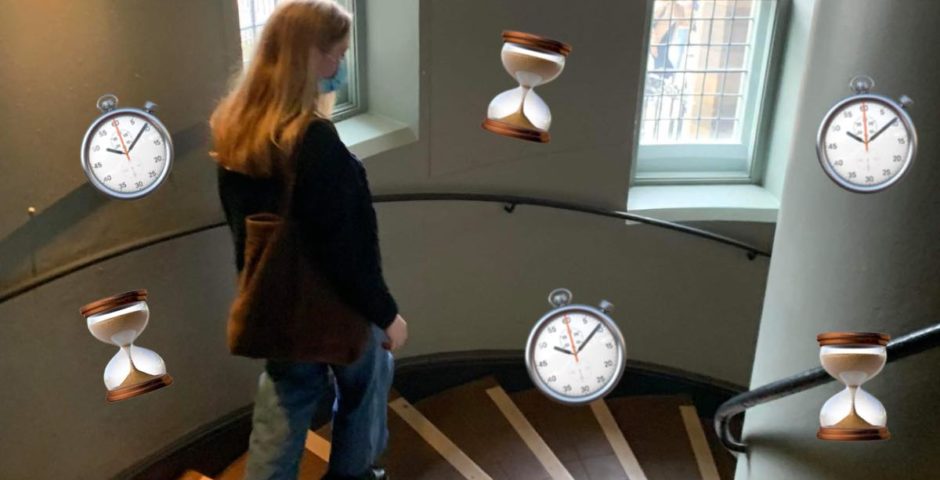
How the pandemic changed our concept of time
You can’t be a Fresher in fourth year
No matter what stage of my life or school I’ve been in, the beginning of each academic year always unleashes the all too common reverberation of “I can’t believe I’m in [second] year!”. Despite it being February, I still find it rolling off my tongue at any given moment.
Any time I think of how shocked I am to be in my current stage of my life, I am reminded of when I was eight-years-old and my friends and I were in complete disbelief about going into Year 5 that September. “Isn’t that just so crazy?”, we said to each other. “I just can’t believe it!” “Year 5 sounds so old!” “We’re like, old now.”
We can all agree that the progression of time is an unbelievable thing, but I think we’ve done a decent job of conceptualizing it so far.
That is until the pandemic completely deconceptualized it.
Reaching milestones in a pandemic

In 2020, as a 17-year-old introvert with much room for overthinking social settings, the idea of spending a few weeks at home did not sound bad at all. I viewed it as a short period to relax and maybe even make a study plan for my upcoming A Levels. That obviously didn’t happen and we know how those ‘unprecedented times’ unfolded.
I couldn’t help but mourn my youth as I was going through it. After an underwhelming start to uni and spending almost half of my 18th year indoors, the thought of a 19th birthday and being in my second year of university was genuinely unbelievable. I remember saying to my friends how I don’t think I would care even half as much about the effects of the pandemic if I was in my seventies – I was trying to get my driver’s license for a car, not a mobility scooter.
I realised the pain stemmed from how I was not only mourning youth, but mourning the experiences that sensationalized it. I had missed a school graduation ceremony and a drunken Freshers’ week that was supposed to land me millions of friends. When you’re crying through your A Levels and over your personal statement, being told that “university will be the best years of your life” makes it all seem worth it. This is why the progression through the academic year doesn’t just feel unbelievable, it feels unfair – as if I didn’t get the chance to properly age into the stage of my life that I’m in now.
Even now, after things settled down and I attended my first in-person lecture after almost two years, I find myself constantly rationalising the impacts that the pandemic has had on my life, and trying to make some sort of justification for it. I am grateful that I am finally having a more normal university experience but it’s impossible to not fantasize about what could’ve happened without the restrictions diminishing the expectations that I had.
The reality is, I probably won’t feel entirely satisfied come my 2024 graduation

Not saying that everyone usually does, but I already fear the inevitable feeling of extreme unpreparedness from not having a proper university experience. I find myself always seeking reassurance from older years, looking for some indication of contentedness and satisfaction, so that I’m not afraid to turn 21 with a dissertation in my hand.
I remember speaking to a fourth year last semester and asking her whether she felt like one, and was discomforted by her jarring response of “oh, absolutely not”. We had a conversation about how the last academic year (a.k.a. a disaster) felt like it didn’t even count and she said she felt like she was only just in her second year.
I am still petrified at the thought of being in fourth year and I tell myself that I’m being irrational, I’m only in second year! But how can I not worry? The expectation to live out certain experiences have been completely warped and the perspective of fulfilling a certain type of university life has changed.
So, why do we mourn youth before we’ve even fully experienced it?

The freedom depicted in the sensationalism of being in high school and your early twenties creates such a noticeable, labelled disparity between the youth of a university student and the youth of a 25-year-old.
Once again, I find myself rationalizing being 25, or even 35 because the media is filled with this idea of death of relevancy once you hit 30. I think we can all resonate with Phoebe Bridgers when she sings: ‘How long will it be cute, all this crying in my room? When you can’t blame it on my youth, or roll your eyes with affection’.
The portrayal of a disappearing safety net after graduation only instils a deeper fear in ageing and the progression of time, and in turn, we fear our own maturation.
I wish I had some sort of conclusion to this long, panicked rant that visits my stream of consciousness way too often. But I don’t.
There really is no comfort to imagining what could have happened, so don’t regret the people you didn’t talk to during Freshers’ Week and the STDs you didn’t catch. Living in the present means living with the inevitability of ageing and the reality of time, which is that, it will indeed pass and the real adult world is right around the corner.
Recommended related articles by this writer:
• Revealed: University of Edinburgh saves £57,000 a day during strike action
• From ASOS to Zoom pickets: Everything you need to know about the strikes
• Edinburgh Law School staff accuse uni of ‘penny-pinching’ after removing free teabags









































